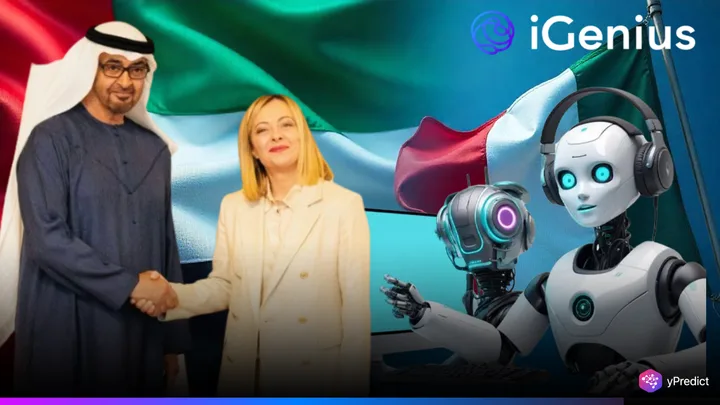
The United Arab Emirates is investing $1 billion to help build a powerful AI supercomputer in southern Italy. UAE tech company G42 and Italian AI startup iGenius announced the deal on Friday. The five-year project, named Colosseum, will use Nvidia hardware and create what may become Europe’s largest AI system. The deal builds on a $40 billion UAE pledge announced in February. Prime Minister Giorgia Meloni called it a breakthrough for tech cooperation with the Gulf.
Colosseum: Building a European Powerhouse for AI
The companies plan to build the AI supercomputer Colosseum in the Apulia region of southeastern Italy. Tech investors have often overlooked this area in Europe’s growth. The facility will support AI applications in fields such as healthcare, finance, manufacturing, and language processing. G42 will finance the initial development, backed by Abu Dhabi’s Mubadala and U.S. private equity firm Silver Lake. iGenius will provide the software layer and AI development expertise. The company promotes Crystal, its AI platform for business analytics and decision-making. “This isn’t just hardware,” said G42 CEO Peng Xiao. “It’s a turning point for Europe’s digital independence.” The partnership also includes advanced research collaborations and workforce development initiatives.
Investment Brings Hope and Questions in Southern Italy
Italian Industry Minister Adolfo Urso called the project a “strong opportunity” to rebalance economic growth between northern and southern Italy. Local officials expect the facility to bring hundreds of jobs in engineering, cybersecurity, and AI ethics. The center could also attract further investment from other global tech players. However, some experts caution that big challenges remain. Europe has tight data laws, so sharing information with outside partners could get tricky. Some people worry that companies might misuse the data. Environmental groups say the center might use too much power. Italy’s green energy push means new projects must stay efficient. Others want clear answers about who controls the system long-term.
A Test for Europe’s AI Sovereignty and Global Partnerships
The Colosseum project highlights a growing global race to develop AI infrastructure. Europe has lagged behind the U.S. and China in building such systems. With this investment, Italy may claim a leadership role if it ensures local control and ethical safeguards. Some lawmakers have questioned whether relying on non-European funding risks long-term technological dependence. Others argue that such partnerships are essential to compete globally and avoid falling behind. For now, both governments describe the project as a balanced alliance with clear mutual benefits. Whether it stays that way will depend on how the partnership evolves in the years ahead.
Will AI Investments Define Europe’s Digital Future or Create New Divides?
The AI supercomputer Colosseum could shape Europe’s role in artificial intelligence for decades to come. It promises innovation, jobs, and stronger infrastructure. Still, some worry about foreign control, energy use, and data privacy. AI now shapes everything from hospitals to classrooms. People need to trust that companies are using the data responsibly. Leaders must make sure the project helps communities, not just companies. Italy’s move makes headlines, but staying on track will take strong rules and local support.






